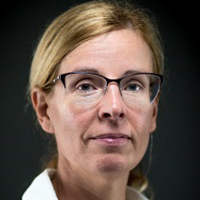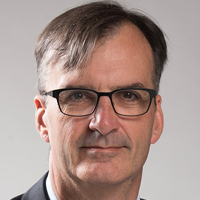
Canada’s 150th anniversary is a time to celebrate and appreciate what we have as a country and society and to reflect on what we have learned. It is also a time to look forward — to boldly take stock of the challenges facing us today and envision Canada as the even greater society that it can become. For the federal public service, it is a time to expand our toolkit, grow our knowledge base, and foster a culture that can deliver that visionary future.
Canada Beyond 150: Policy for a Diverse and Inclusive Future is a new project championed by the Privy Council and delivered by Policy Horizons Canada. It is designed around the principle that a consciously diverse and inclusive approach to policy development will enable better and more innovative methods, generate stronger analyses, and yield better outcomes and greater prosperity for all Canadians.
At its core is a cohort of more than 80 new public servants recruited from across Canada, who will dedicate a portion of their work weeks to delivering on two goals: 1) to experiment with new methods in policy development to make it more transparent and accessible to the public and partners, in order to develop skills and encourage a culture shift to a more open, innovative and collaborative public service; and 2) to engage a wide and diverse spectrum of partners in the development of longer-term analyses and innovative ideas to influence and inform future policy-making. Taken together, these goals are designed to generate positive ripple effects in the culture of the public service and develop forward-looking insights in some of the most pressing issues in the Canadian public policy environment.
The project will focus on five timely and important thematic areas: reconciliation, open and transparent government, socio-economic inclusion, the United Nations’ Sustainable Development Goals, and feminist government. Participants will be invited to think about how these issues might evolve over the longer term, how the Government of Canada could prepare for these changes, and how this thinking could be integrated into policy, programming, operations, and public engagement. And reflecting the driving principle of Canada Beyond 150, they will consciously approach the complex policy problems in each of these domains through the lens of diversity and inclusion.
In practical terms, Canada Beyond 150 will emphasize open policy development and innovative methods. It will introduce participants to the foresight analysis methods developed by Policy Horizons Canada, a knowledge organization within the Government of Canada focused on medium-term policy development. Participants will experiment with design thinking and other tools, and they will be encouraged to engage and collaborate with partners both within and outside the federal public service. Most of the project’s work will be conducted virtually, including training workshops in innovative methods and tools that will be posted publicly for all to use.
In every element of their work, Canada Beyond 150 participants will be driven to communicate their experiences and insights, as well as their successes and failures. Their experience is designed to be an open-source, shared resource for all corners of the Canadian public policy community. And the hope is that the participants themselves will in turn become new leaders and change-makers in policy development.
Canada’s 150th anniversary is an opportunity to harness the collective ambition and drive of the public service to grow and make a difference. We can test digital-enabled ways to engage citizens, businesses, and other institutions in the policy and program development processes. We can look beyond the horizon of our short-term priorities and products to think big about how macro-level challenges and trends could have cascading impacts on the Canadian policy landscape. And we can design diverse and inclusive solutions that will resonate through the Government of Canada’s policies, programs and operations for years to come.
Canada Beyond 150 is an exciting test kitchen for this approach. We’re thrilled to share it with you, and as our work begins we invite you to engage and participate. We encourage you to visit our website at canadabeyond150.ca and to follow us on Twitter @CanadaBeyond150 and help us design policy for a diverse and inclusive future.
This article is part of the Public Policy toward 2067 special feature.
Photo: A surfer walks along the shore in Cow Bay, NS THE CANADIAN PRESS/Andrew Vaughan
Do you have something to say about the article you just read? Be part of the Policy Options discussion, and send in your own submission. Here is a link on how to do it. | Souhaitez-vous réagir à cet article ? Joignez-vous aux débats d’Options politiques et soumettez-nous votre texte en suivant ces directives.











